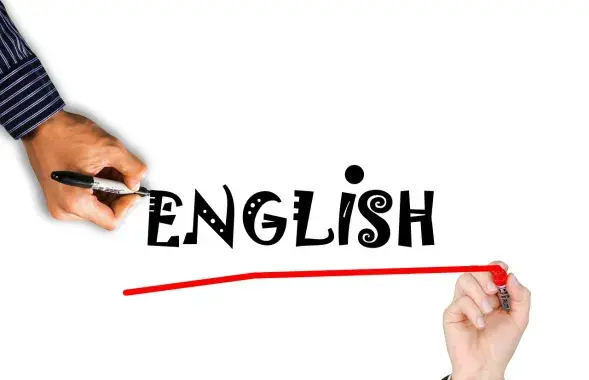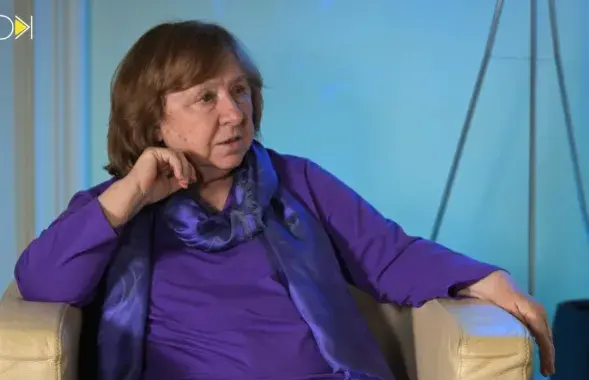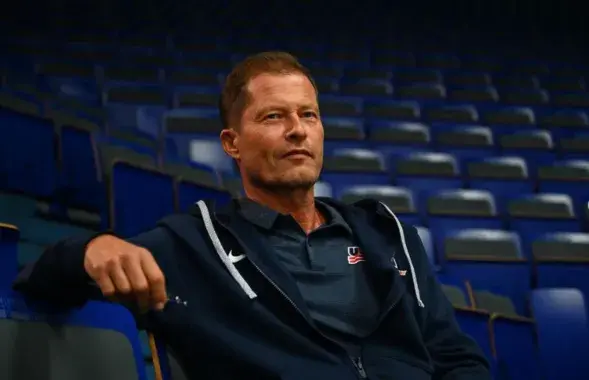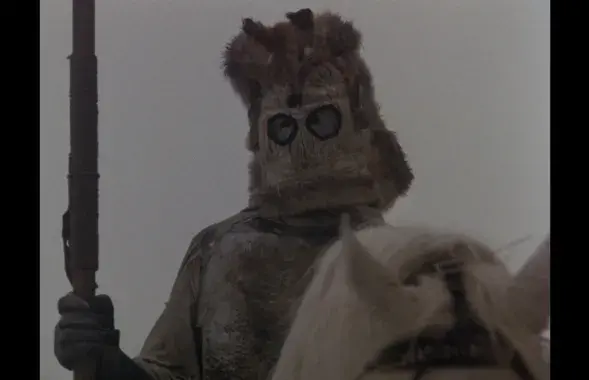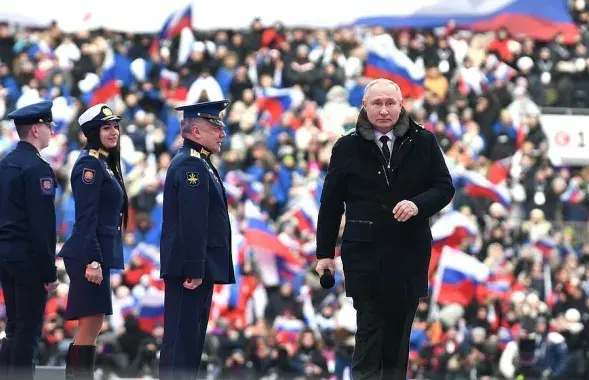OAC: Why should we advertise blacklisted sites?
Operative and Analytical Center deputy director tells Euroradio about Decree No.60 violations, black lists and new registration system for Internet cafe users
Photo: Vladimir Ryabovolov and Dunja Mijatovic, OSCE media freedom representative.
The deputy director of Operative and Analytical Center under the President of Belarus Vladimir Ryabovolov gives Euroradio exclusive interview.
Euroradio: Speaking at OSCE conference in Vienna, you said that the monopoly of Beltelecom restrained the development of the Belarusian IСT. Will the creation of the National Center of Traffic Exchange (NCTE) stimulate the competition?
Vladimir Ryabovolov: I named several factors that restrained the development of ICT in Belarus. One of them was the monopoly of Beltelecom. But it is not the only one. Beltelecom brought many positive things, too. It is the largest national telecommunication company. It contributed to many achievements on the market, even though it is not the only participant of this market. Beltelecom owns the biggest share, around 80%, of the national network. De facto, Beltelecom is the owner of the external gateway, so all traffic first goes to Beltelecom, and then Beltelecom redistributes it to others. We haven't managed to achieve price parity. This is sort of a problem for us. We learned from the international experience. The reform of national telecommunication companies took place in many countries of Central and Eastern Europe. We are not pioneers here, we're following the best practices. In my opinion, when we have a normally functioning competitive environment, it will raise the effectiveness of all market players, including Beltelecom.
Let's take the example of mobile operators. Remember the prices when we had Velcom only? Now the prices are affordable, and the competition is flourishing.
Euroradiо: You also stated that the creation of NCTE allowed a 2,5-time decrease of traffic price for providers. Does it mean the Center is already working?
VR: The annoucement of NCTE already created some expectations. Companies started to compete - including Beltelecom - and the prices went down.
However, NCTE is not working to its fullest potential yet. We need to build infrastructure for it, provide necessary technical equipment and, most importantly, attract significant investments. To solve these tasks, the Belarusian Cloud Technologies company was set-up, with NCTE as one of the founders. Soon we will see the tangible results of its activities.
Euroradio: After Moldovan authorities stopped the monopoly on external gateway, Internet providers and telecom operators received their own gateways, thus stimulating the development of the web sphere. Now, one can buy a monthly unlimited package of Internet connection there for 10 EUR, with the speed 10 times higher that Belarusian ByFly offers. Will our providers get their own external gateways, too?
VR: Setting up NCTE as the national operator is only the first step. This process will be continued. The real competition probably demands a big number of players. However, we should treat responsibly things that were created in our country. Beltelecom is a serious organization with more than 20 thousand staffers, good policies, traditions... We should respect our past while creating something new.
Euroradio: Your Center is 'an independent regulator'. What's the essence of your regulatory work? What do you do?
VR: First of all, all market participants are entitled to filing complaints with us if, for some reason, there are no conditions for fair competition on the market. OAC has an authority to make a comprehensive, unbiased and free-of-any-corporate-interests analysis and take necessary decisions.
Euroradio: Any examples?
VR: For example, we received a letter from a company that complained about a state-owned company, the latter trying to impose additional payments for the infrastructure. In principle, the state company acted in line with the law. However, our Center reviewed the complaint and issued a statement. Eventually, no additional payments were not introduced by the state company. If they were, it would make the services more expensive. We don't go public about it, but we review such cases regularly. We have lawyers, economists who are specializing in such issues.
We also have the Council of the independent regulator that solves the most important problems. This council includes, alongside with our workers, very competent people: representatives of business and academic circles. Their participation ensures a comprehensive representation of opinions and interests and thus allows to take the most objective decisions.
Euroradio: Who are the members of that Council and what are its functions?
VR: The members of the Council are defined by the presidential decree. The Council is responsible for the most important issues that require an independent opinion. As times goes by, everything will even out, and we will increase the role of private companies as well as the role of independent Internet regulation. For now, we have this scheme when we attract external opinions in order to avoid mistakes.
Euroradio: So, did the Council discuss the issue of abandoning passport checks at Internet cafes?
VR: Yes, it did.
Euroradio: Did the Council influence your decision?
VR: It wasn't just the Council. We consulted with NGOs, reviewed the complaints, we also asked to send us suggestions. That was a painful issue both for users and for Internet cafe owners. At first, when we were preparing the Decree No. 60, they [owners] told us: let's introduce passport cheks, since we can't afford buying video recording equipment. As time shows, this wasn't a very comfortable solution. However, some owners would prefer to keep passport checks.
Euroradio: Why?
VR: They don't want to invest money.
Euroradio: Are they obliged to install video cameras if they don't check passports?
VR: They can choose to install a camera, or identify via SMS, or via some other channel.
Euroradio: So, if I go the Internet cafe today, should I take my passport with me?
VR: It will depend on the cafe's management. Some places still have the old passport scheme.
Euroradio: And if they don't ask for passport, how will they record me?
VR: Depending on the technical solution they chose.
Euroradio: Are they free to make their own decision?
VR: There is an open list of identification procedures, and owners of cafes must choose one of them. But most importantly, the passport check is not obligatory.
Euroradio: Why do you need to identify users anyway?
VR: It's about responsibility.
Euroradio: Someone who wants to do something has many ways to hide his trails - for example, by using a proxy server.
VR: That's not so easy. Even proxies leave their traces. Of course, we cannot avoid all the risks for the citizens' security. But at least we can attempt to minimize those threats. This is not only our practice, this is European and world practice, too. There are more restrictive practices in many countries with well-developed Internet.
Euroradio: The threat of terrorism is understandable in case of WiFi in the airports. What about restaurants and cafes which were obliged to ask passports of those people who used their WiFi? Many of them didn't, by the way. Were they punished? How many were punished for the violation of Decree No. 60, in general?
VR: We analyzed the administrative practice for 2012. There were only five cases of administrative punishment for the violation of the Decree No.60, all of them not related to Internet cafes. The protocols were made by tax authorities and were related to sales and services, using foreign resources.
Many provisions in Decree No. 60 protec citizens' property rights. Let's take someone who bought a broken cellphone and tries to return it but can't find the seller. Now this person is protected by the norm that enforces all companies to sell goods and services only on Belarusian-ased resources. But in practice, we don't see to many violations. Is that good or bad? I think that it is good. We created easy-to-understand rules that discipline the system.
Euroradio: At the conference you said that a webpage could appeal the decision to place it on the limited-access list. But how can a webpage find out that it was put on such a list if the list itself is restricted?
VR: There's an established procedure for such a situation. The State Telecommunication Inspection is the agency responsible for the creation of these lists. They are based on justified conclusions made by responsible state bodies. As far as I know, the majority of those webpages contain porn or extremist materials. I was told that now the list includes 119 webpages. Why don't we make it open? If we made those addresses open, it would generate an additional interest. Why should we advertise them? In addition, the access is limited only for state institutions.
Euroradio: By the way, where is it limited? At schools?
VR: Yes. Schools are state institutions, too.
Euroradio: Are you able to open these sites at OAC?
VR: Well, since we are dealing with these issues, then we should have access to those sites. But I do not visit them. I am too busy to visit webpages that are included in that list. If there is a violation relevant to our work, we can initiate the procedure to include a webpage on that list.
Euroradio: Did you suggest any pages?
VR: Not even once.
Euroradio: So, you said that if the owners of the webpage do not want to be on that list, they should appeal. How can they find out that they are on the list?
VR: This information is available at the State telecommunication inspection. Perhaps, interested parties can turn to the inspection.
Euroradio: We heard that Charter'97 and Belaruspartisan.org were on that list. Why were they included there?
VR: I can't give you a definite answer. We did not ask for that. I just assumed it was for the copyright infringement.
Euroradio: So what happens if the wepbage reforms and stops violations? Can it be deleted from the list?
VR: My position is that they should be able to appeal. One of the speakers at the OSCE conference said that it had to be transparent, justified and with the right to appeal. So, we have this transparent procedure, the inclusion into the list is justified and there is the right to appeal.
Euroradio: The procedure is not 100% transparent, since you do not inform the webpages that they are put on the list. The owners do not get a message that informs them about it. Isn't transparency about letting the webpage know what it violated and what was the reason to include it into the list?
VR: My guess is that the owners of such web pages very rarely act legally. They rarely provide all the necessary official contact details which we can use to inform them. In any case, when we will be improving the legislation, we will think about better ways to inform the society about such things. At the same time, it is important not to stir up the unhealthy interest in openly extremist webpages.
Euroradio: Have you read the comments calling OAC a secret service?
VR: I have both read and heard them.
Euroradio: So, what are the functions of OAC? What do you do?
VR: We are responsible for the technical protection of informational resources of state bodies and other entities. We provide security for the informational systems that run critically important national infrastructure operations.
We are also the administrator of the national domain zone and we are the authorized representative providing security for the national segment of the Internet.
Of course, we also actively participate in the speedy development of ICT. All these functions are given to us by the law.

